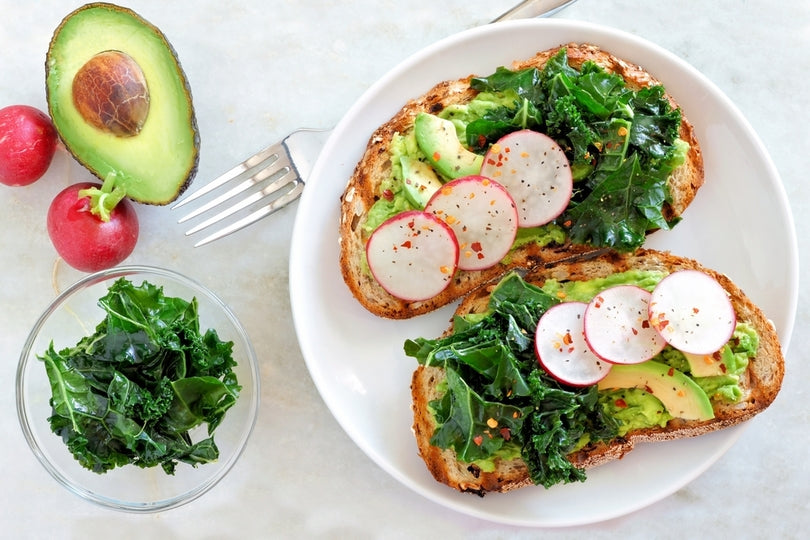The Truth About Food Cravings


Everyone has food cravings. Whether you are a sweet tooth or enjoy a salty snack, I am sure they have hit you at one point or another - more often than not in the middle of the night or post workout. Sometimes when we succumb to these cravings, they can leave us feeling guilty for having strayed from our healthy lifestyle habits.
What a lot of people don’t know is that most of the time food cravings are not necessarily a result of hunger, but a combination of psychological and biological components. So yes, there may be an explanation as to why you are craving an entire antipasto platter in the middle of the day other than you being ridiculously hungry!
The difference between food cravings and hunger
Your body behaves differently when it comes to hunger and cravings. When you are hungry, your body signals to your brain that it is time to eat. This is a natural response that helps us to stay alive and function properly from day to day.
When your blood sugar levels begin to drop, your body releases a hormone called ghrelin that communicates with your brain that you need food. There is also another hormone called leptin that let’s us know to stop eating once we begin to feel full.
What causes food cravings?
When it comes to cravings, it is a little more complicated than just providing your body with something that it needs (such as food, water or sleep). The mind is complex and when you crave something, it is not necessarily because you need it to survive.
According to research, the insula, hippocampus and caudate are the parts of the brain that are believed to be responsible for food cravings. These parts of the brain are in charge of short- and long-term memory creation, your social emotions and the dopamine reward system. Dopamine is a feel good hormone that is linked to the feeling of pleasure, and sometimes addictions.
So you can see why you may crave certain foods. If you have had nothing but pleasurable experiences when eating chocolate cake, your brain is telling you this will make you feel better. Let's take a look at some of the other causes of cravings.
Emotional eating
Your emotions, stress in particular, can play a huge role in food cravings. In relation to the point above, when you eat things such as refined carbohydrates, salt and sugar, your body produces feel good hormones, such as dopamine, which can make you crave it again and again. These hormones can also make us feel relaxed, so there is a reason why you reach for the chocolate instead of the carrots when you are feeling stressed or anxious.
I think it is important to understand this point so that you aren’t too hard on yourselves, girls. if you had a really bad day it is okay to indulge your chocolate cravings because yes, it may make you feel a little better.
On the other hand, I think this point is also super important because knowing what causes your cravings can help you curb them. If you are a highly stressed person, eating junk food and take-away every day may not be the best solution for you. Instead you can equip yourself with this knowledge and try to find different outlets for your stress. For example, taking a long relaxing walk, practicing yoga or reading a book are different ways to handle your emotions and occupy your mind.
You're not getting enough nutrients
Another reason you may crave certain foods is that you aren't getting enough of the nutrients you need from your diet. In order for our body to function at its best, we need to fill it with the right type and amount of nutrients. If you are lacking in certain nutrients, your body may develop cravings for foods that contain these.
This is why when so many people go on restrictive diets they may find themselves experiencing intense cravings. This can be your body’s way to communicate that it is lacking certain nutrients - especially if you have been cutting out certain food groups.

How to fight food cravings
As I mentioned above, if you experience cravings when you are feeling particularly down, stressed, anxious or it’s that time of month, learn to recognise these behaviours and come up with strategies to cope. Understand that you are craving that food for a reason and take the time to delve a little deeper into why you may be feeling a certain way at that particular time.
Eat a balanced, nutritious diet
When it comes to nutritional deficiencies, the best thing you can do is eat a wholesome, balanced diet that includes foods from all food groups. Try to get all of your important nutrients from foods rather than supplements and always pick foods that have been processed as little as possible.
Stock up on healthier options
If you are someone who struggles with cravings A LOT, remove the foods that you crave from your pantry. By stocking up on junk food and chocolate, you are making it easy for yourself to access these when cravings hit.
Instead fill your fridge and pantry with healthy snacks and other foods you can eat that will fill you up and not leave you wanting more! You may find that making a couple of healthy food swaps goes a long way to reducing temptations from foods you'd prefer not to eat.
Eat smaller meals more often
When you eat smaller, more frequent meals throughout the day it helps to keep your blood sugar levels regulated and keeps cravings at much more manageable levels. Space your meals out every three hours to give your body constant fuel.
Eat more complex carbs
As good as that big bowl of pasta or that buttery slice of white bread may look, they will only intensify your cravings and cause you to eat more. Aim to eat lots of fibre-rich complex carbs such as whole grain breads, cereals, beans and vegetables so that your body takes a while to break them down and absorb them, in turn curbing your cravings.
Learn to enjoy food without worrying about food cravings
Above all girls, I want you to remember it is okay to indulge a little once in awhile. Never deprive yourself and never feel like you CAN’T eat anything. Be aware of what it is that you are putting into your body, and how it will make you feel.
* Disclaimer: This blog post is not intended to replace the advice of a medical professional. The above information should not be used to diagnose, treat, or prevent any disease or medical condition. Please consult your doctor before making any changes to your diet, sleep methods, daily activity, or fitness routine. Sweat assumes no responsibility for any personal injury or damage sustained by any recommendations, opinions, or advice given in this article.




<#= c.user.username #><#= moment(c.created_at * 1000).fromNow() #>
<#= c.html_body #> <# if (c.images) { #>
<# } #>